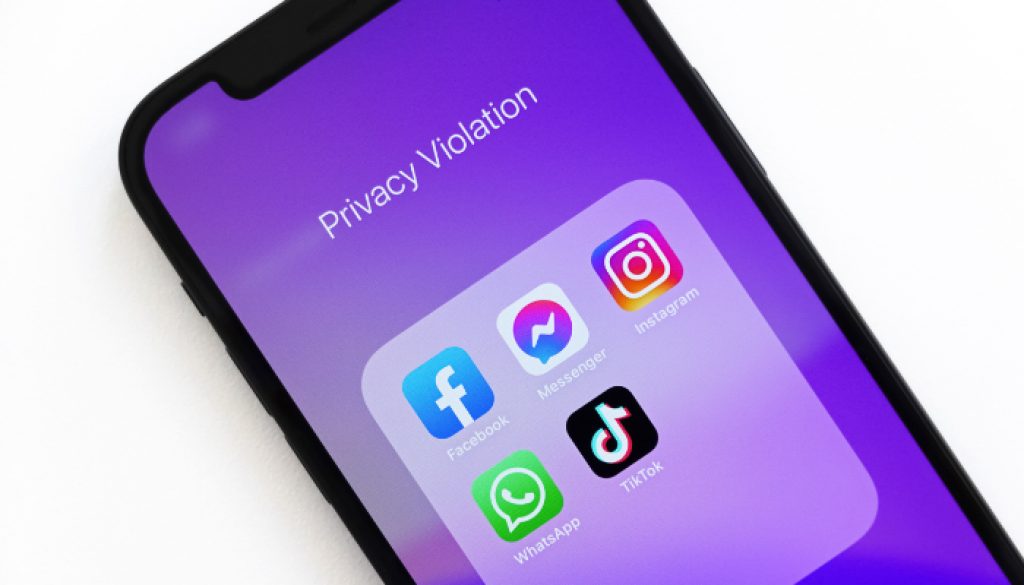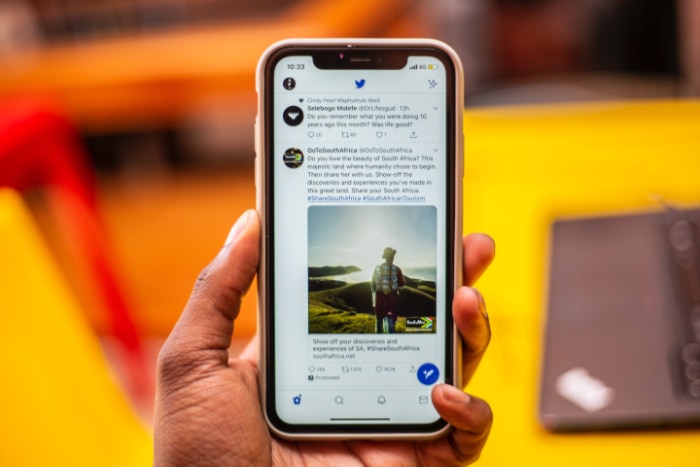The Impact of the Internet on Our Lives

Stepping into the digital age, our lives have become intertwined with the internet, an innovation that has revolutionized how we work, learn, communicate, and entertain ourselves. This powerful network of networks, since its emergence, has consistently evolved, profoundly altering various aspects of our day-to-day existence.
This blog aims to delve into the depths of this subject, exploring the diverse ways in which the internet has influenced our lives.
Social Impact
The internet has had profound social implications, changing the way we communicate, connect, and build relationships.
Effect on Communication
The internet has been instrumental in changing the way we communicate. Prior to its inception, communication was relatively slow and often delayed, with letter writing and telephone calls being the primary modes of communication.
Instant Messaging and Emails: With the advent of the internet, instant messaging and emails have become the new norm. Services like WhatsApp, Messenger, and various email platforms allow us to communicate instantly with individuals across the globe, breaking down geographical barriers.
Social Networking Sites: Websites like Facebook, Instagram, and Twitter have changed the face of social interaction, allowing us to connect with a broad network of friends, family, and colleagues. These platforms have made it possible to share thoughts, ideas, and experiences in real-time, fostering a global sense of community.
Impact on Relationships
Our interpersonal relationships have been equally affected by the internet. The way we form, maintain, and even end relationships has been influenced by online platforms.
Online Dating: The rise of online dating sites and apps like Tinder, Bumble, and Match.com has significantly altered the landscape of romantic relationships. These platforms provide an opportunity to meet people outside one’s immediate social circles, providing more options for potential partners.
Maintaining Long-Distance Relationships: The internet has also made it easier to sustain long-distance relationships. With video calls, instant messaging, and social media, couples can stay connected and communicate more easily, regardless of the physical distance between them.
Rise of Social Issues
While the internet has numerous positive impacts, it has also led to new social challenges that we need to address.
Cyberbullying: The internet, particularly social media, has given rise to cyberbullying. This form of bullying occurs online and can have severe consequences for the mental health of the victims.
Privacy Concerns: With the proliferation of digital data, concerns about privacy and data security have become increasingly prevalent. Ensuring the protection of personal information in the online world remains a significant challenge in the internet era.
Economic Impact
The economic impact of the internet is vast, transforming commerce, finance, and the workplace.
The Advent of E-Commerce
The internet has been a game-changer in the world of commerce, leading to the rise of online shopping, or e-commerce. Brick-and-mortar stores are no longer the only option for consumers.
Online marketplaces like Amazon, eBay, and Alibaba have transformed the retail landscape, allowing consumers to shop from the comfort of their homes, at any time.
Online Banking and Digital Currencies
The finance sector has also seen significant changes due to the internet.
Online Banking: Internet banking services have made financial transactions seamless and convenient. We can now make purchases, transfer funds, pay bills, and check account balances with just a few clicks.
Digital Currencies: The rise of cryptocurrencies, such as Bitcoin and Ethereum, is another internet-induced phenomenon. These digital currencies provide a new form of value exchange over the internet, challenging traditional financial systems.
Remote Work and Freelancing
The internet has reshaped the workplace and employment in several ways.
Remote Work: With high-speed internet and collaborative tools, many companies now allow employees to work remotely. This flexibility has changed the traditional 9-to-5 office setup and broadened job opportunities for many.
Freelancing: Platforms like Upwork and Fiverr have made it easier for professionals to offer their services on a freelance basis. These platforms connect freelancers with clients globally, providing opportunities for independent work.
Internet’s Influence on Traditional Businesses
Even traditional businesses have been influenced by the internet.
Digital Marketing: Businesses now use the internet for marketing and advertising, leveraging social media, email, and SEO to reach their target audience.
Online Services: Many traditional service providers, such as hotels, taxis, and restaurants, have gone online. Platforms like Uber, Airbnb, and Grubhub have capitalized on this trend, disrupting established industries.
Educational Impact

Education has been deeply influenced by the advent of the internet, transforming the learning landscape in unprecedented ways.
Online Learning Platforms and Courses
The internet has fundamentally altered the landscape of education, making learning more accessible and flexible than ever before.
Online Learning Platforms: Websites such as Coursera, Udemy, and Khan Academy offer a plethora of online courses in various fields, allowing individuals to learn at their own pace and from the comfort of their homes.
Massive Open Online Courses (MOOCs): Universities and educational institutions around the world now offer MOOCs, providing free or low-cost access to high-quality education to anyone with an internet connection.
Access to Information and Knowledge
The internet serves as a vast library, providing unparalleled access to a wealth of information.
Search Engines: Platforms like Google have made it possible to find information on virtually any topic in seconds, significantly enhancing research and learning capabilities.
Digital Libraries and Databases: Online libraries and databases offer access to millions of books, academic articles, and other resources, facilitating in-depth research and learning.
Impact on Academic Research
The internet has significantly affected academic research, enabling collaboration and information sharing on a global scale.
Collaborative Research: The internet allows researchers from different parts of the world to collaborate, share data, and conduct joint research projects.
Open Access Journals: These online publications provide free, immediate access to research findings, accelerating the dissemination of knowledge and scientific advancements.
Health and Lifestyle Impact
The role of the internet extends to the spheres of health and lifestyle as well, revolutionizing healthcare and our daily habits.
Telemedicine and Online Health Resources
The advent of the internet has significantly influenced the healthcare sector, revolutionizing the way we access and manage health services.
Telemedicine: Internet-enabled telemedicine services allow patients to consult with healthcare professionals from the comfort of their homes. This is especially beneficial for those living in remote areas or with limited mobility.
Online Health Resources: Websites like WebMD, Mayo Clinic, and numerous health blogs offer a wealth of information on various health topics, enabling individuals to educate themselves about different medical conditions and treatment options.
Online Fitness and Wellness Platforms
The internet has also made it easier for individuals to take charge of their personal fitness and wellness.
Fitness Apps and Platforms: Services like MyFitnessPal, Strava, and Peloton provide workout routines, fitness tracking, and community support, helping users stay motivated and achieve their fitness goals.
Mindfulness and Mental Health Apps: Platforms such as Headspace and Calm promote mental well-being by providing mindfulness exercises, meditation guides, and sleep aids.
Effect on Mental Health – Positives and Negatives
While the internet offers numerous health benefits, it also poses certain mental health challenges.
Online Support Groups: The internet provides platforms for individuals dealing with mental health issues to connect with others experiencing similar challenges, offering much-needed support and understanding.
Cyber-Related Mental Health Issues: However, the constant connectivity can also lead to issues such as internet addiction, cyberbullying, and social media-induced anxiety and depression.
The Influence on Our Everyday Habits and Lifestyle
The internet has drastically changed our daily habits and lifestyle.
Digital Entertainment: Streaming platforms like Netflix and Spotify have transformed the way we consume entertainment, providing on-demand access to a vast array of movies, TV shows, and music.
Smart Home Technology: Internet-enabled smart home devices have automated many routine tasks, such as controlling lighting, temperature, and home security systems, simplifying our lives.
Political Impact
Politics and civic engagement have been significantly influenced by the internet. This section explores how digital platforms have reshaped political discourse, campaigns, and activism, creating new opportunities and challenges in the political sphere.
Internet as a Platform for Political Discourse
The internet has become a critical platform for political discourse and civic engagement, profoundly reshaping the political landscape.
Social Media and Political Discourse: Social media platforms like Twitter and Facebook have become vital tools for political communication, allowing politicians to connect directly with citizens, express their viewpoints, and respond to current issues.
Digital Political Campaigns: Political campaigns have evolved to incorporate digital strategies, utilizing social media, emails, and websites to mobilize supporters, raise funds, and spread campaign messages.
The Role of Social Media in Elections and Politics
Social media’s influence on elections and politics cannot be overstated.
Voter Engagement: Social media platforms play a pivotal role in engaging voters, especially younger demographics. They serve as platforms for political debates, fact-checking, and spreading information about voting processes.
Influence on Election Outcomes: However, social media can also be used to spread misinformation or propaganda, which can influence public opinion and potentially impact election outcomes.
Online Activism and Protest Movements
The internet has also facilitated the rise of online activism and global protest movements.
Online Activism: Online activism, or “clicktivism,” allows individuals to support causes and engage with social issues digitally. Petition platforms like Change.org, hashtag activism on social media, and fundraising for causes online are all part of this trend.
Global Protest Movements: The internet has played a key role in organizing and amplifying protest movements worldwide, such as the Arab Spring, Black Lives Matter, and climate change protests. These movements rely on social media and other digital tools to mobilize supporters, coordinate actions, and spread their messages globally.
The Future of the Internet

As we look ahead, it’s clear that the internet will continue to evolve, further shaping our world in ways we can’t fully predict.
Internet of Things (IoT): The growth of IoT devices, from smart home appliances to connected cars, will continue to enhance our daily lives. These devices, communicating and interacting with each other over the internet, will automate routine tasks and provide improved services.
Increased Connectivity: With initiatives like Elon Musk’s Starlink, the future will see increased efforts to provide global internet coverage, bridging the digital divide and connecting remote areas to the world wide web.
The Emergence of New Technologies
Emerging technologies will shape the future of the internet, opening new possibilities and challenges.
Artificial Intelligence (AI) and Machine Learning (ML): AI and ML are set to revolutionize various sectors, from healthcare to finance. They will enable more personalized services, predictive capabilities, and automation.
Blockchain and Cryptocurrencies: Blockchain technology and cryptocurrencies will likely continue to impact digital transactions, data security, and online identity verification.
Addressing Future Challenges
While the future of the internet holds immense potential, it will also bring new challenges that we need to prepare for.
Cybersecurity: As our dependence on the internet grows, so does the need for robust cybersecurity measures to protect personal and professional data.
Regulating AI and New Technologies: The ethical and regulatory aspects of AI, machine learning, and other emerging technologies will be a major focus, requiring careful consideration and legal frameworks.
The Internet and Society: Shaping Our Future Together
The future of the internet isn’t just about technology—it’s also about the people who use it.
Digital Literacy: As the internet becomes increasingly integral to our lives, promoting digital literacy will be crucial to help individuals navigate the online world safely and effectively.
Creating an Inclusive Digital Society: Ensuring equal access to the internet and digital services for all segments of society will be vital to prevent a digital divide and create a more inclusive future.
Conclusion
As we have journeyed through the various facets of the internet’s impact on our lives, it’s clear that this powerful technology has brought about significant changes in virtually every sphere of human endeavor, from social interactions and economic activities, to education, health, politics, and beyond.
The internet has not only transformed the way we communicate and consume information, but also how we work, learn, shop, and participate in societal and political processes. It has fostered global connectivity, broken down geographical barriers, and democratized access to information and opportunities.
While the internet has indisputably been a force for good, enabling unprecedented levels of progress and convenience, it has also introduced new challenges. Issues such as cyberbullying, privacy concerns, misinformation, and digital divide have emerged as critical areas that require our collective attention and action.
Looking ahead, the internet is set to continue evolving and shaping our world in ways we can only imagine. From the expansion of the Internet of Things (IoT) and the adoption of emerging technologies like AI and Blockchain, to the quest for universal internet access and the need for digital literacy and regulation, the future of the internet holds vast potential and challenges.


